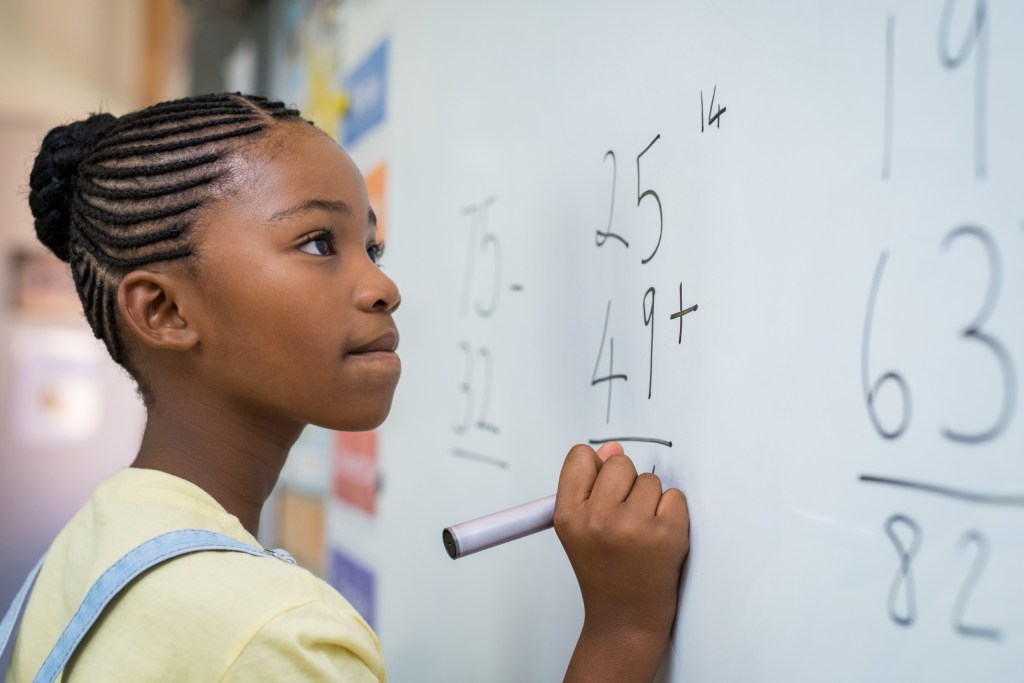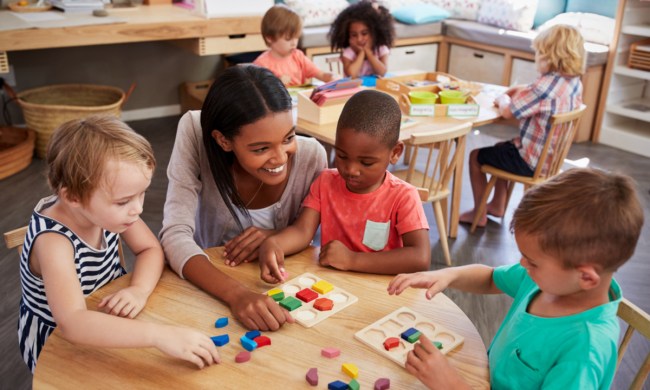Math homework isn’t something even parents remember as fun, but making it fun for your own kids isn’t as hard as you may think. It can actually be easy to get your kid to like math! Mathematics is a foundational skill kids absolutely must learn. Yes, we all have calculators on our smartphones now, but that doesn’t mean there are no math skills needed in life anymore.
Basic concepts are necessary for life skills like paying bills, writing a check, tipping a waitperson, or managing a bank account, and more advanced skills are needed to get through school whether they are required in life or not. Math anxiety is real (93% of Americans deal with it!) and some kids just don’t like working with numbers instead of letters, but there are ways to make it less stressful. The tips ahead will help!
How can I help my child with math at home?
Here are three easy steps you can take to help your child with math. Yes, it’s really that easy.
1. Positive attitude
A positive attitude and confidence on your part will go a long way. It’s actually scientifically proven that the teachers’ and parents’ attitudes toward math make a big difference in the students’ attitudes toward math — such a big difference that adults modeling a positive attitude around math is one of the top recommendations from researchers for minimizing math anxiety in children.
2. Fake it till you make it
Adopt a “fake it till you make it” mentality and be sure you’re not bad-mouthing math even if you don’t actually find it fun. Complaining about math being boring and hard is a sure way to get your child to see it that way, too, but talking about it as interesting helps them see it in that light as well.
3. Study it first
Study what they are studying ahead of time if you can, so you’re able to confidently lead them through their homework. This helps you not appear confused, stumped, or frustrated as you do the work together. Carry the positivity through your reactions to their work and be encouraging when providing mathematics help for your kids.
How to make math fun
Want to make anything fun? Make it a game? There are plenty of fun math games for kids and we wrote about six over here. Puzzles, the abacus, board games, sorting games, counting games, chess, mobile apps… The possibilities are endless! Most board games have you count your way along the board or count the number on the dice, so no matter your child’s age, you can find a game that includes counting. Monopoly is a perfect math classic, but Yahtzee, Ticket to Ride, Chutes and Ladders, and Candy Land also involve math for different age ranges.

How can I help my child be good at math?
Show your child that math is a part of everyday life by mentioning it whenever it comes up and seeking out activities with math involved, such as baking. This will get them math practice at home and help them see the value of math at the same time. Here are some ways for them to use math in life:
- Have them measure the amounts of ingredients needed for a recipe
- Have them add up prices while grocery shopping to calculate a budget
- Have them figure out tax to see what the total amount will be when clothes shopping
- Give them an allowance
- Have them choose the exact amount of bills and coins they need to pay for their meal
- Ask them to calculate how much to leave as a tip at a restaurant
- Have them calculate the square footage of their bedroom if they want new decor
- Do a DIY craft like building a birdhouse where they have to measure lengths of pieces of material
- Talk about sports scores
- Work on telling time and how much more time until something happens
You can also incorporate math into their daily life by reading books that include math in them. Reading a storybook is nothing like reading a textbook and will make math feel like something cute characters do, not a class. Some books include:
- “Chicka Chicka 1, 2, 3” by Bill Martin, Jr. and Michael Sampson
- “How Do Dinosaurs Count to Ten” by Jane Yolen and Mark Teague
- “Inch by Inch” by Leo Leonni
- “Mouse Count” by Ellen Stoll Walsh
- “The King’s Commissioners” by Aileen Friedman
- “Two of Everything” by Lily Toy Hong
- “Usha and the Big Digger” by Amitha Jagannath Knight
- “Who Eats First?” by Ae-hae Yoon
Keep up the positive attitude and consistent inclusion of math in everyday life and your child won’t see math as something to fear. Enjoy!




